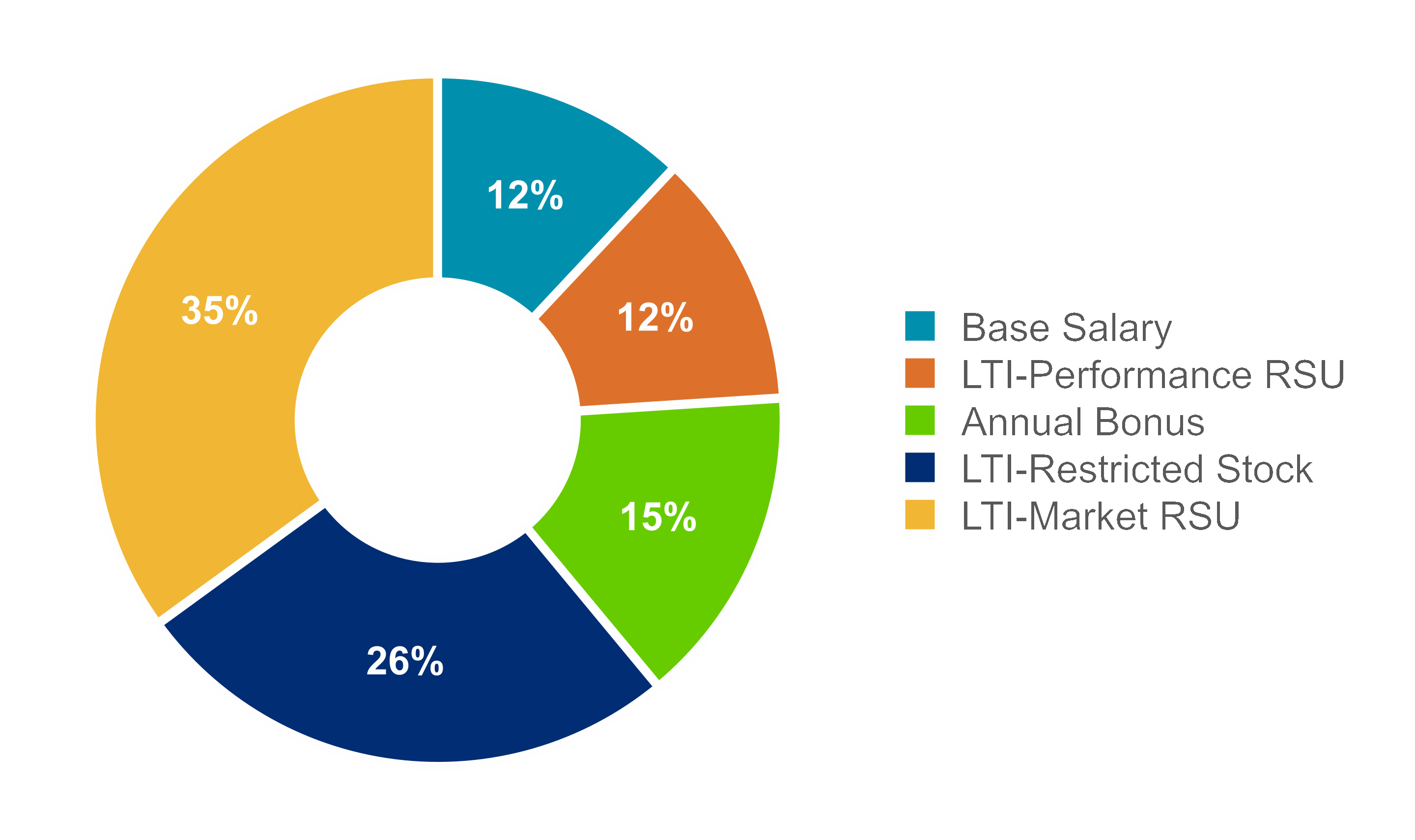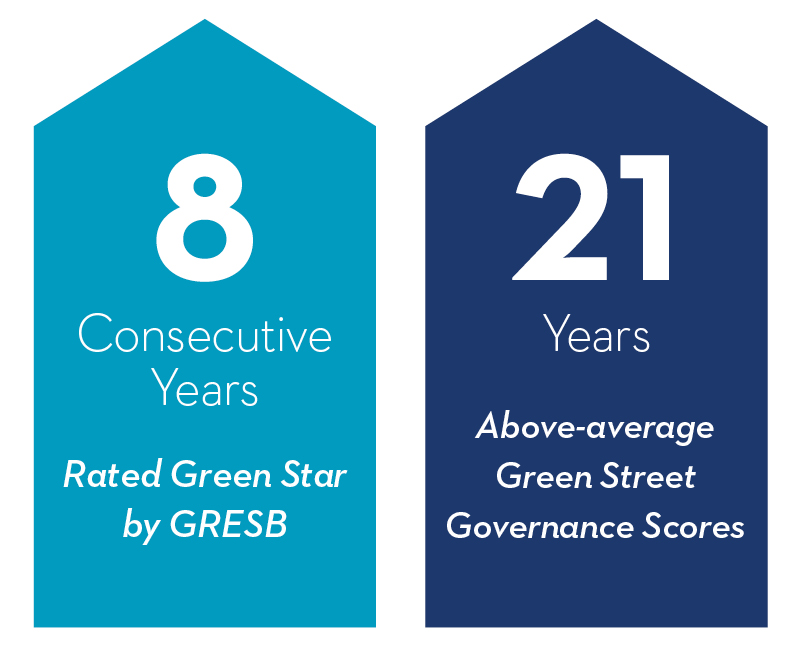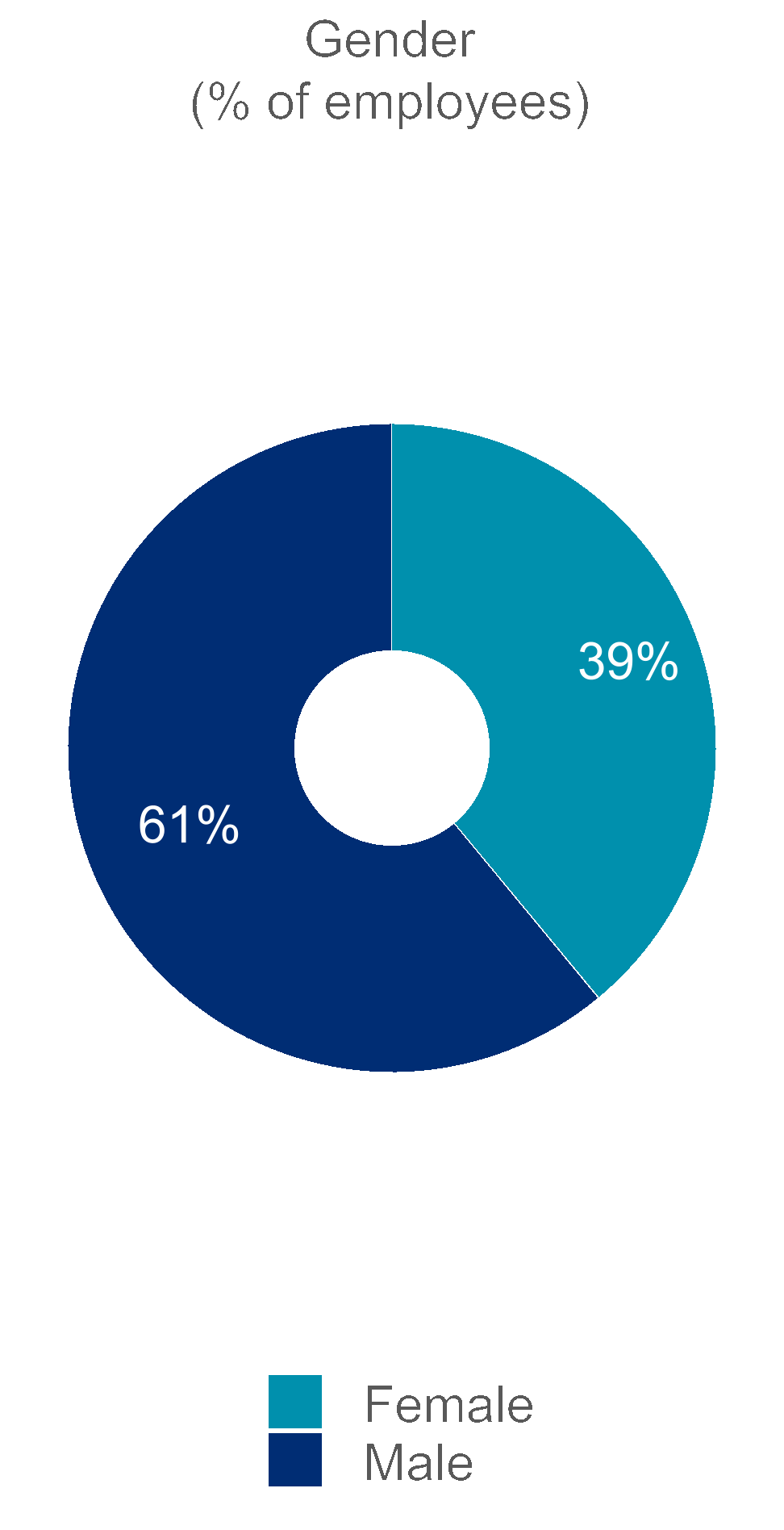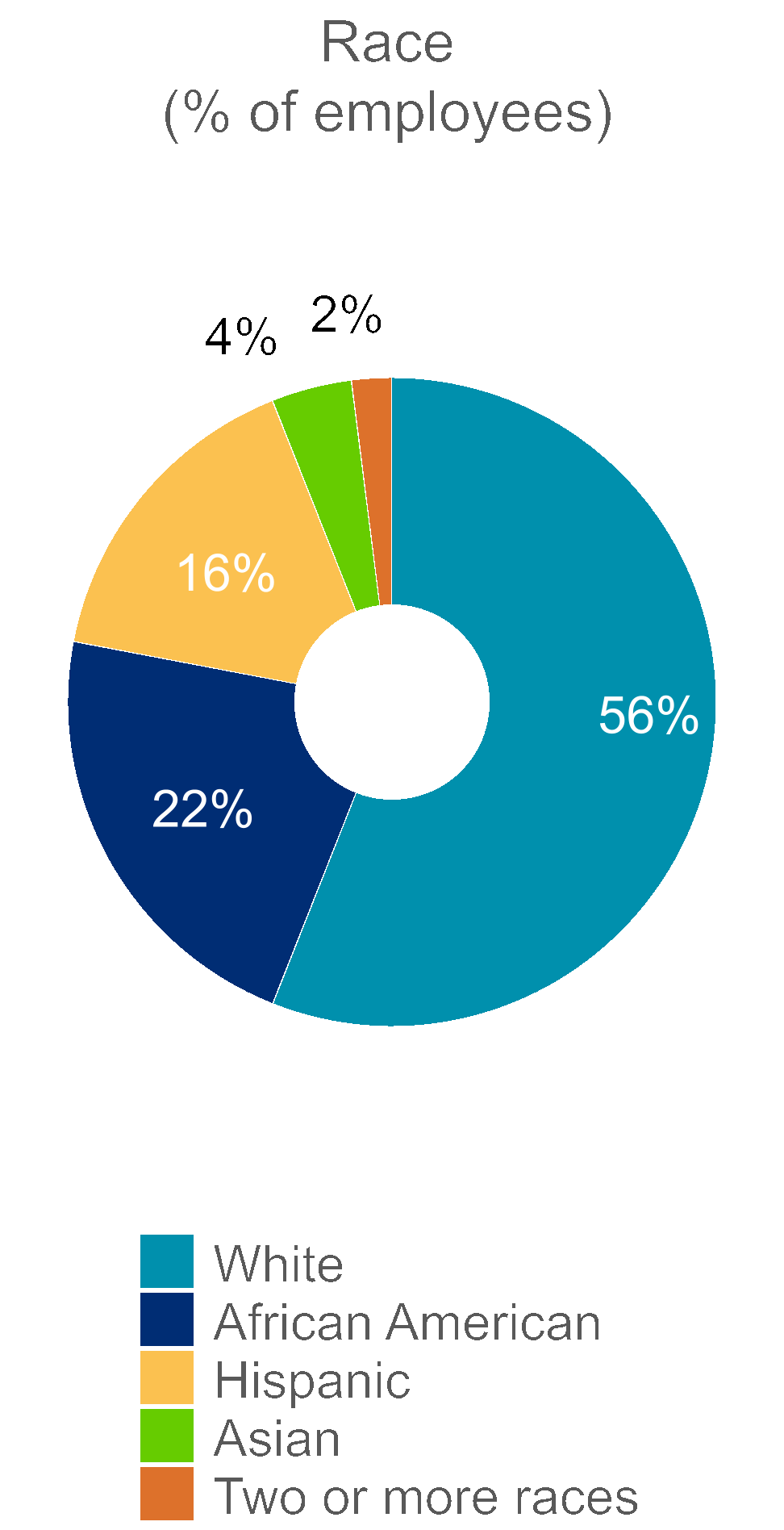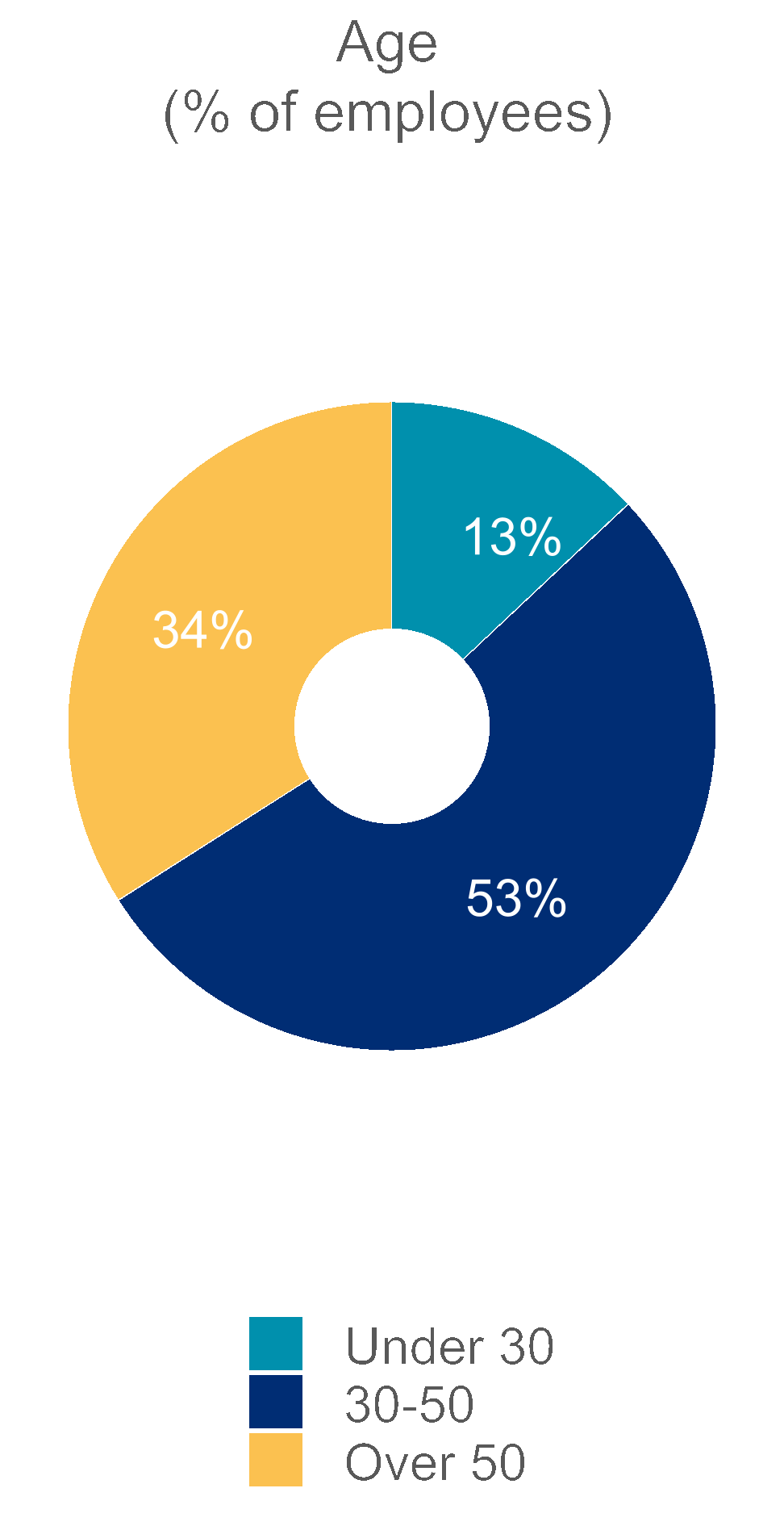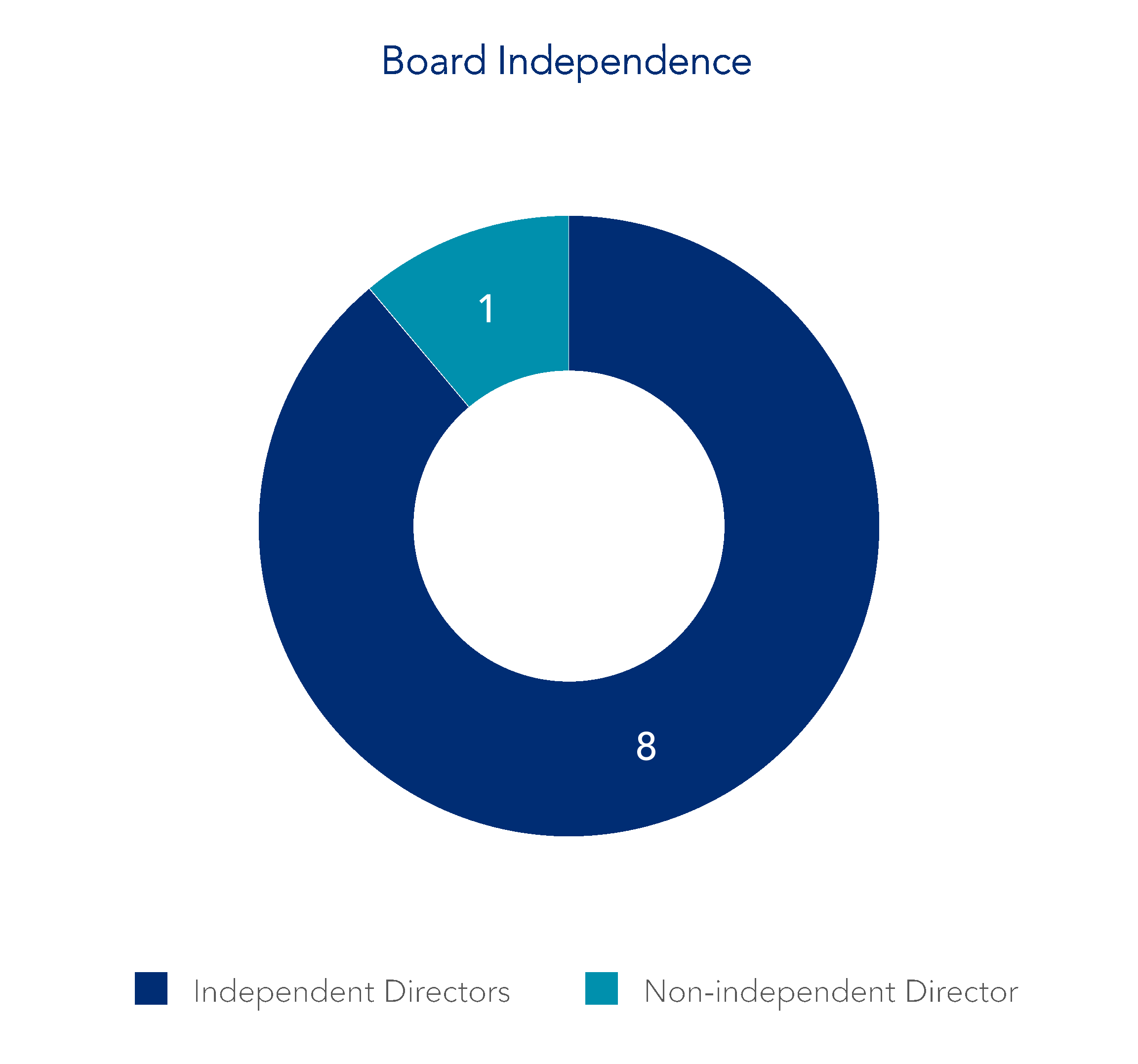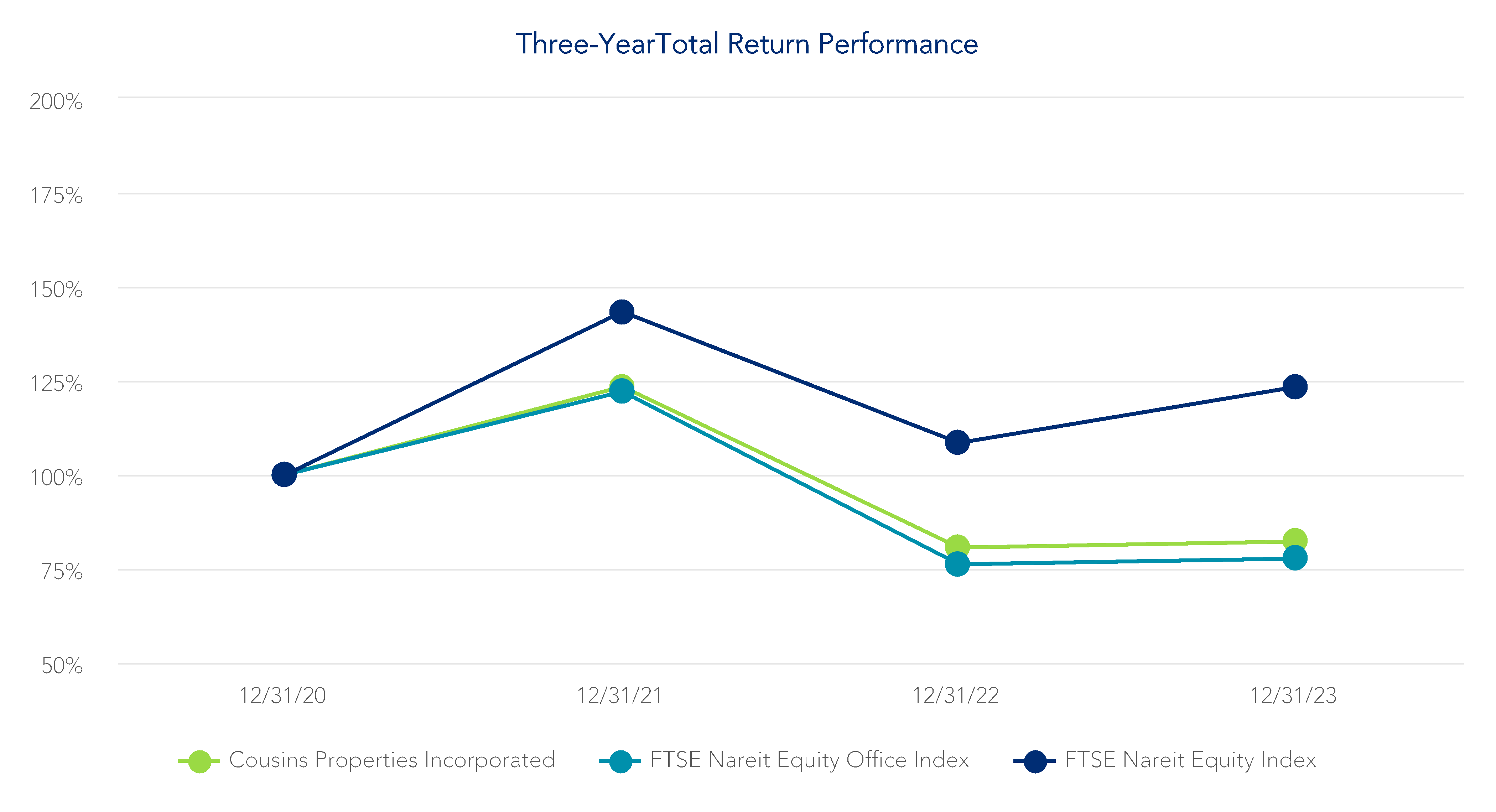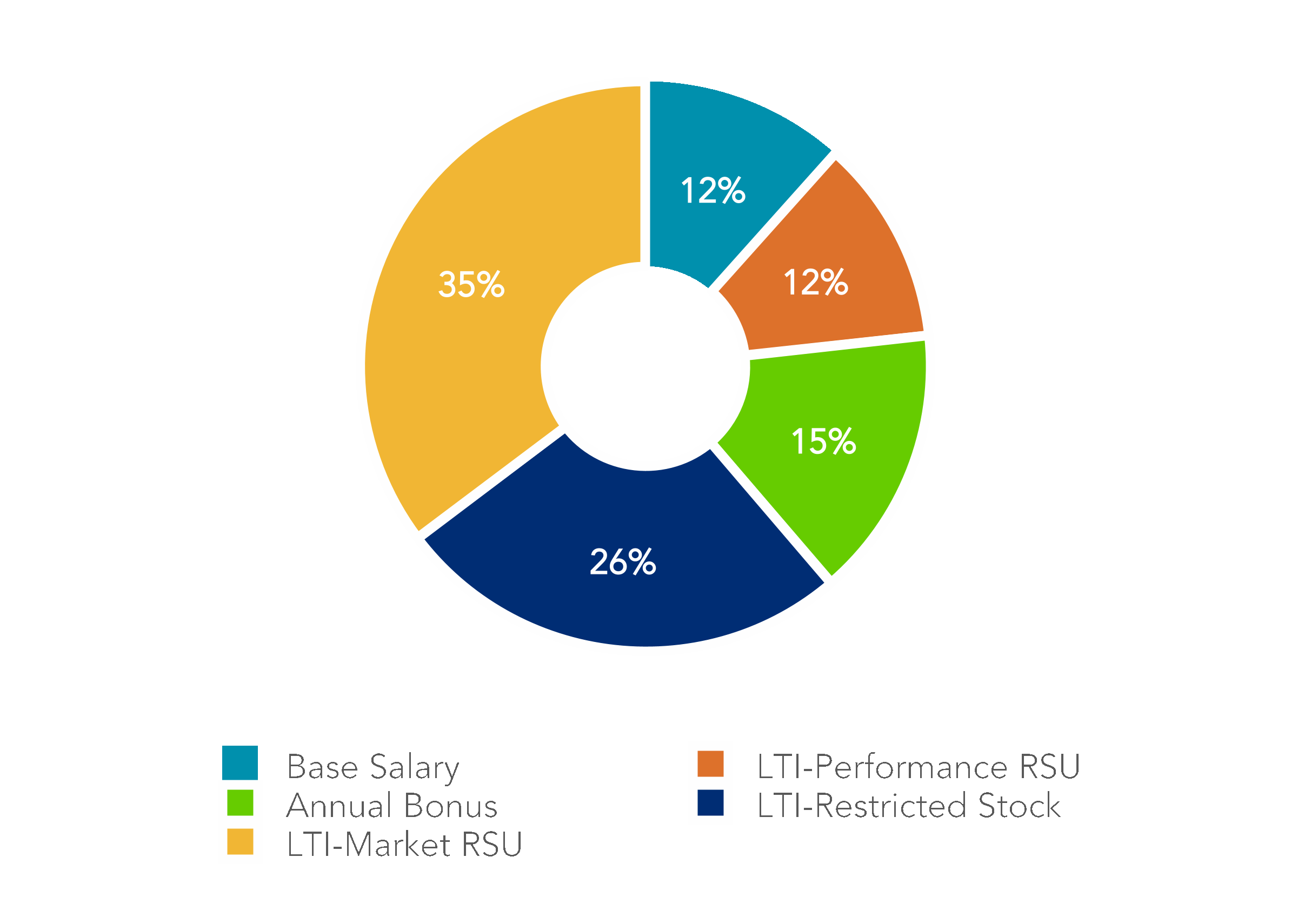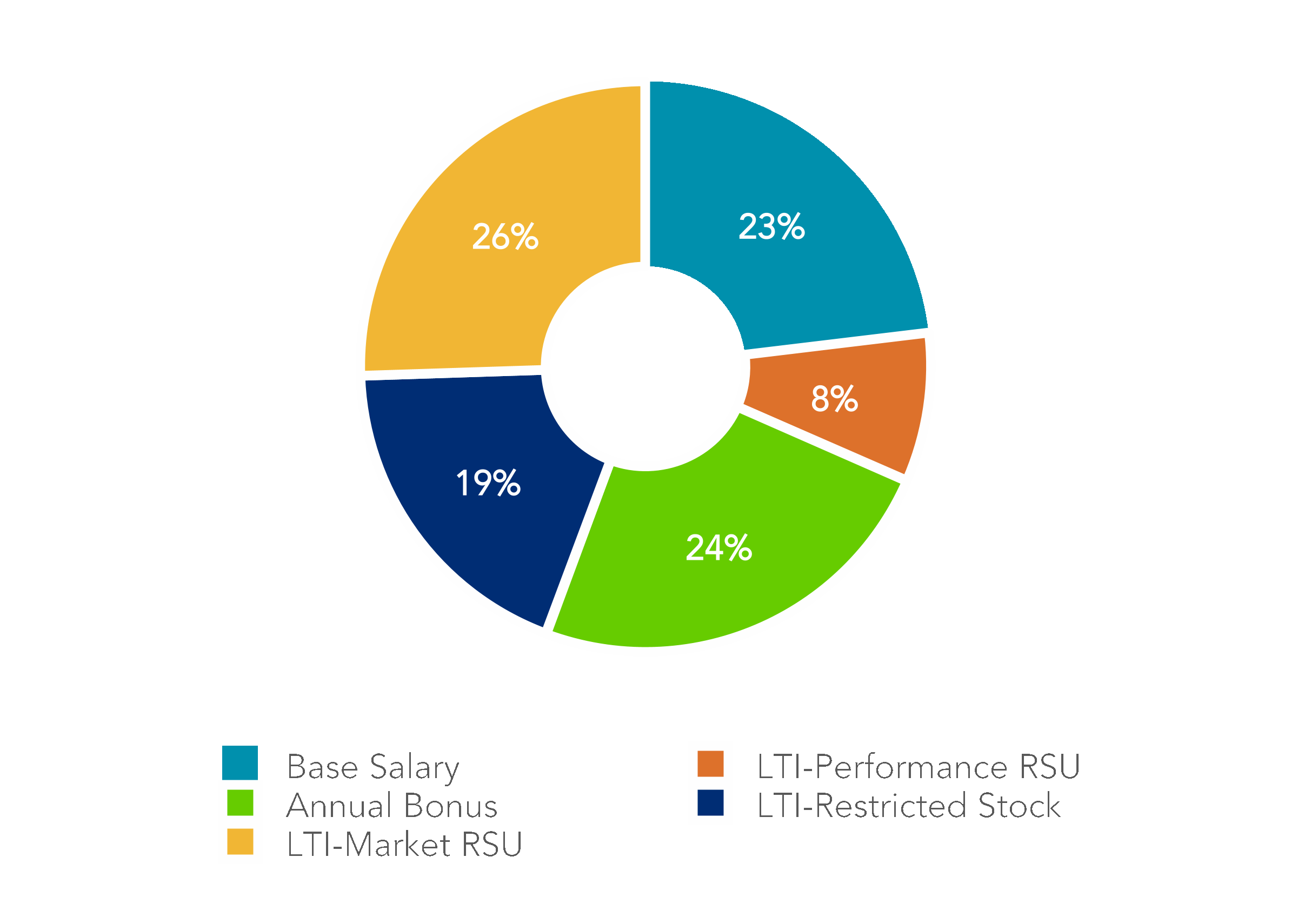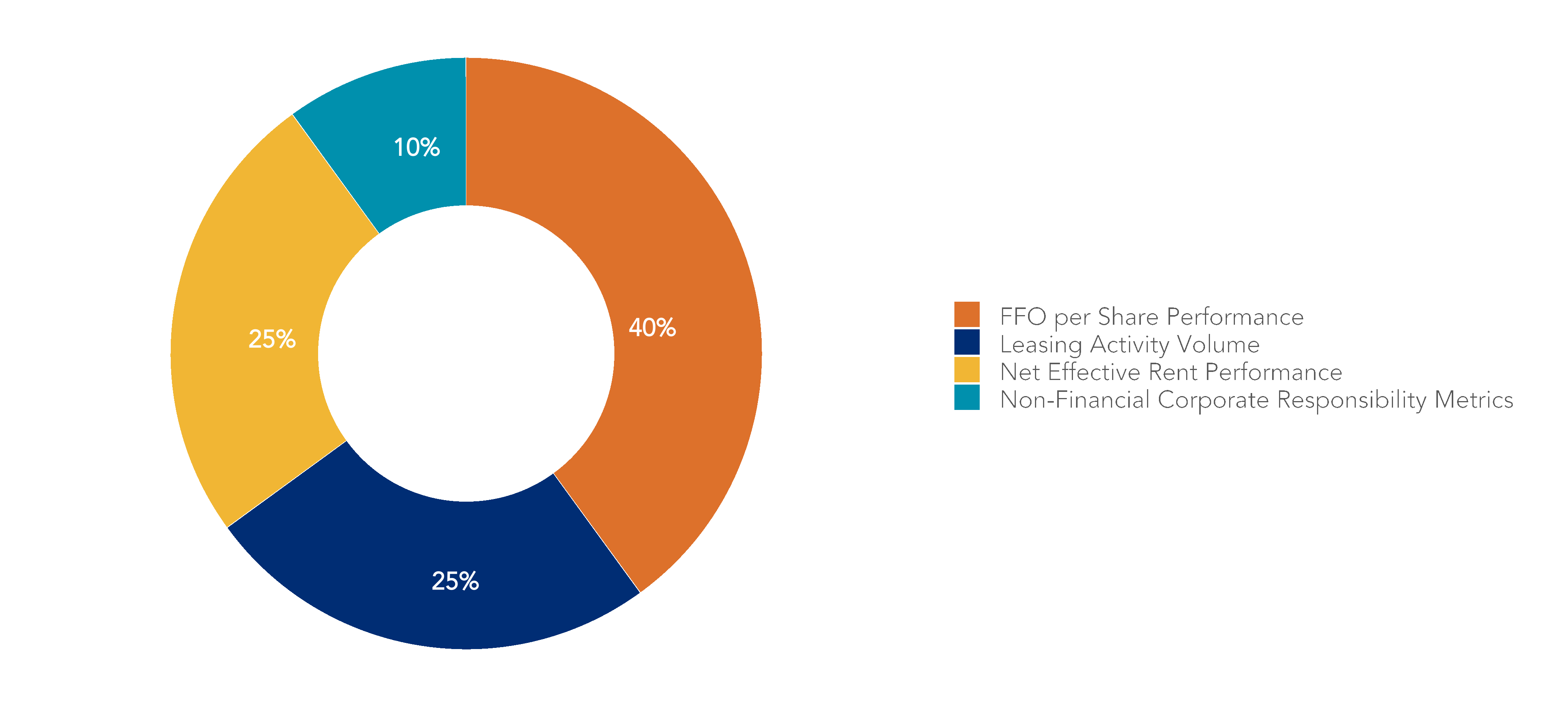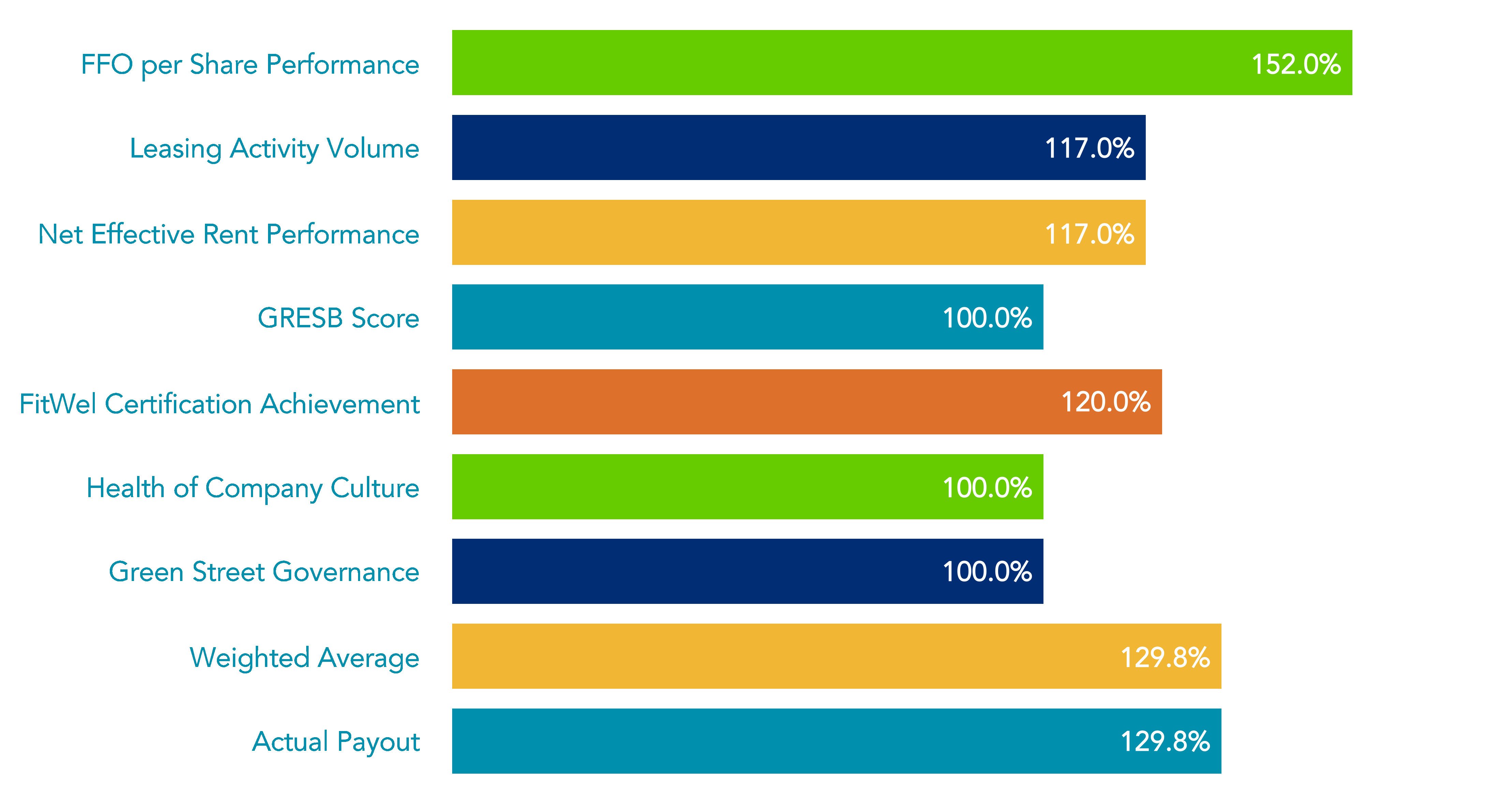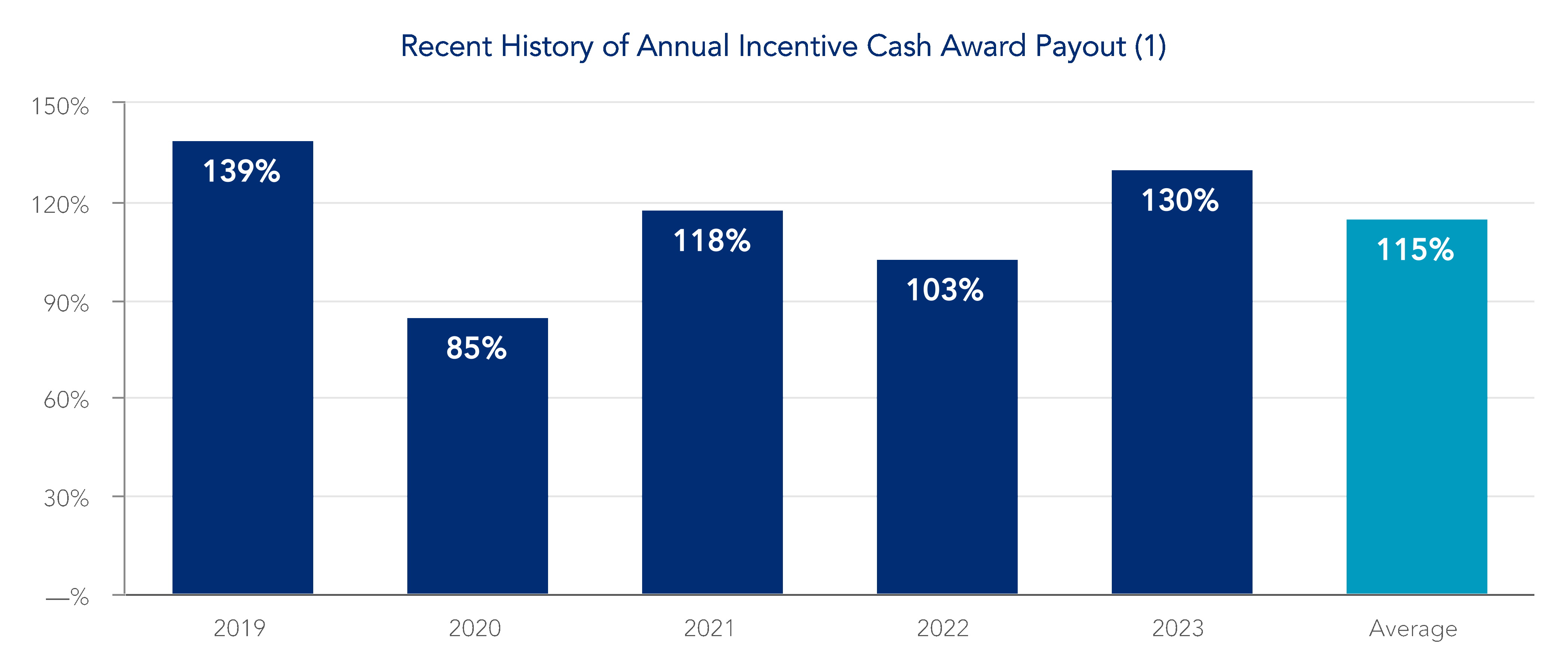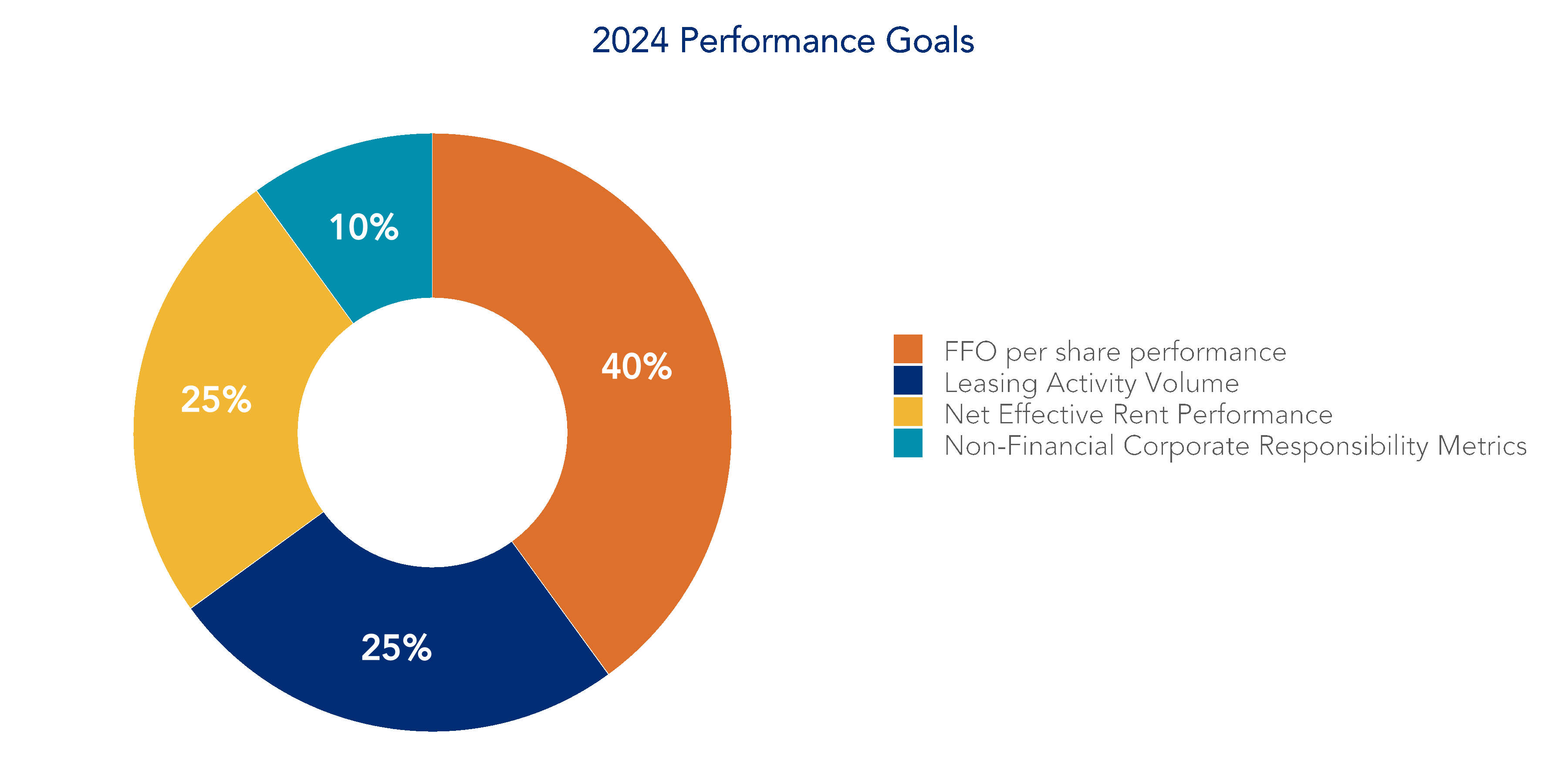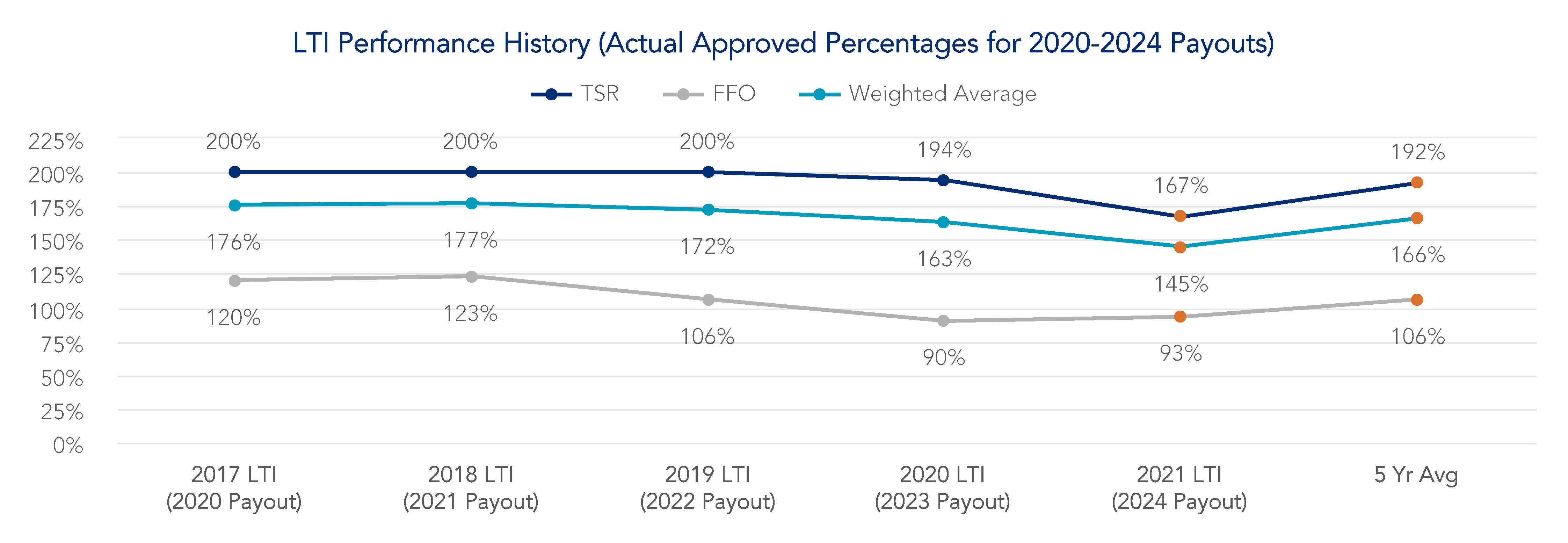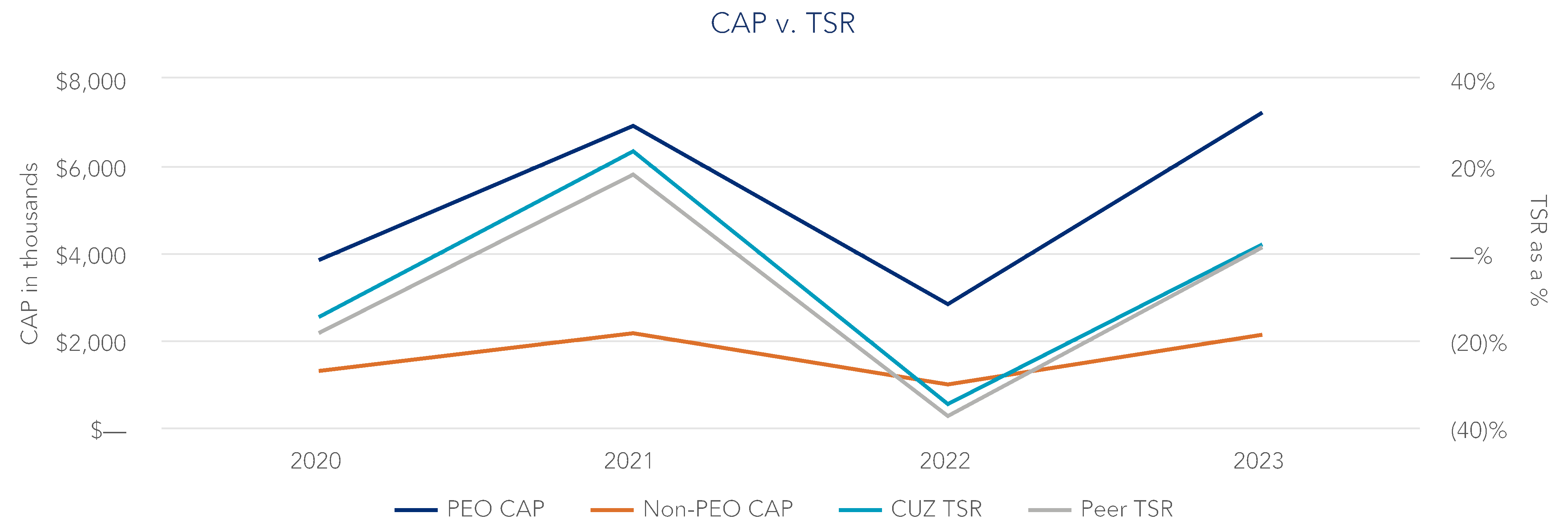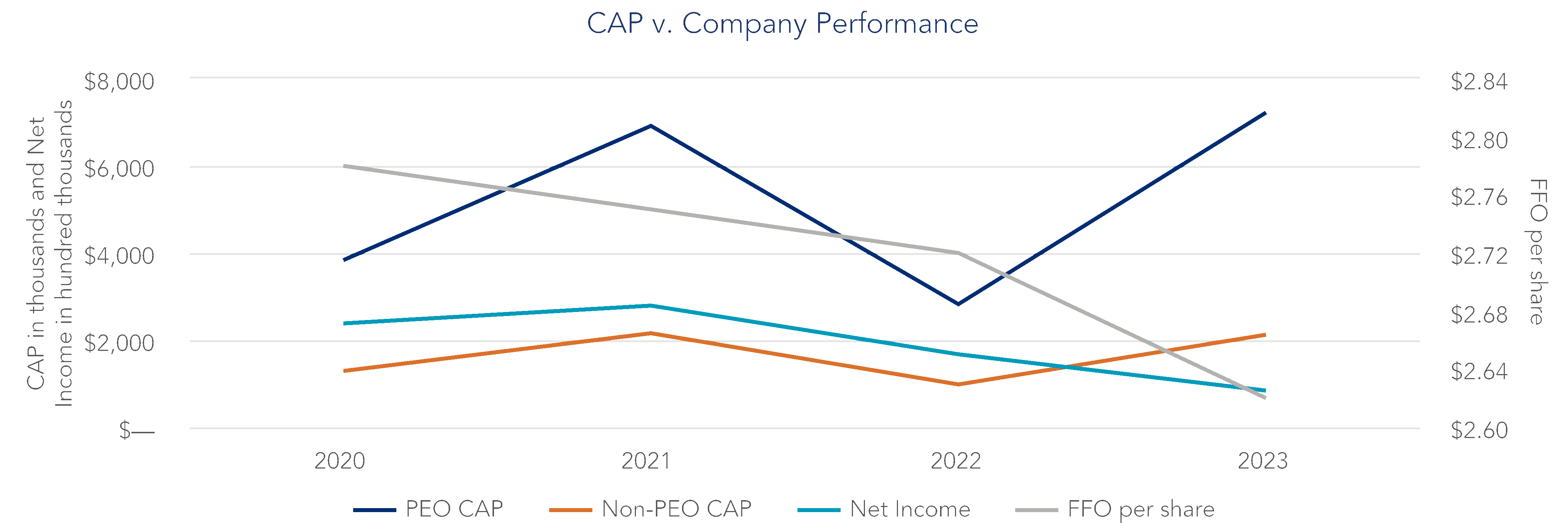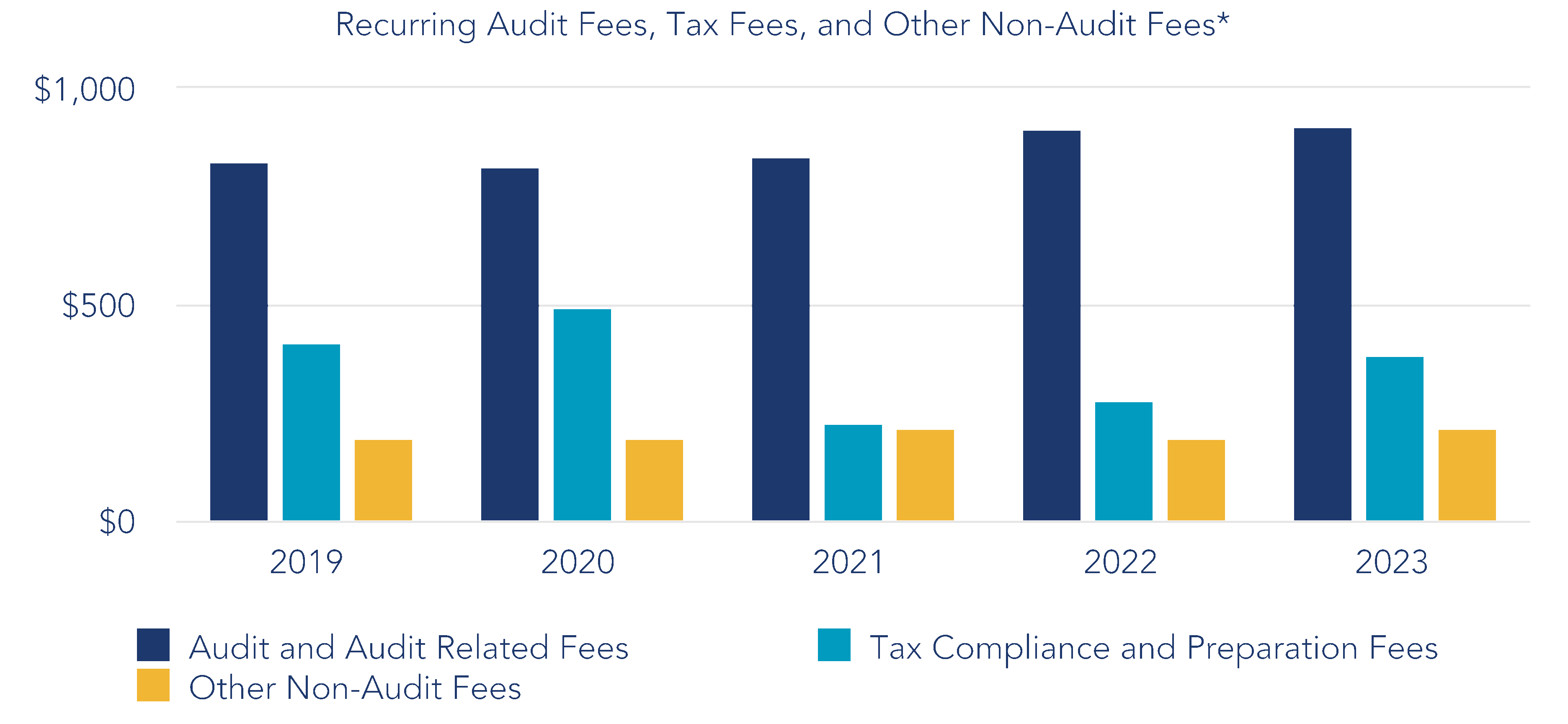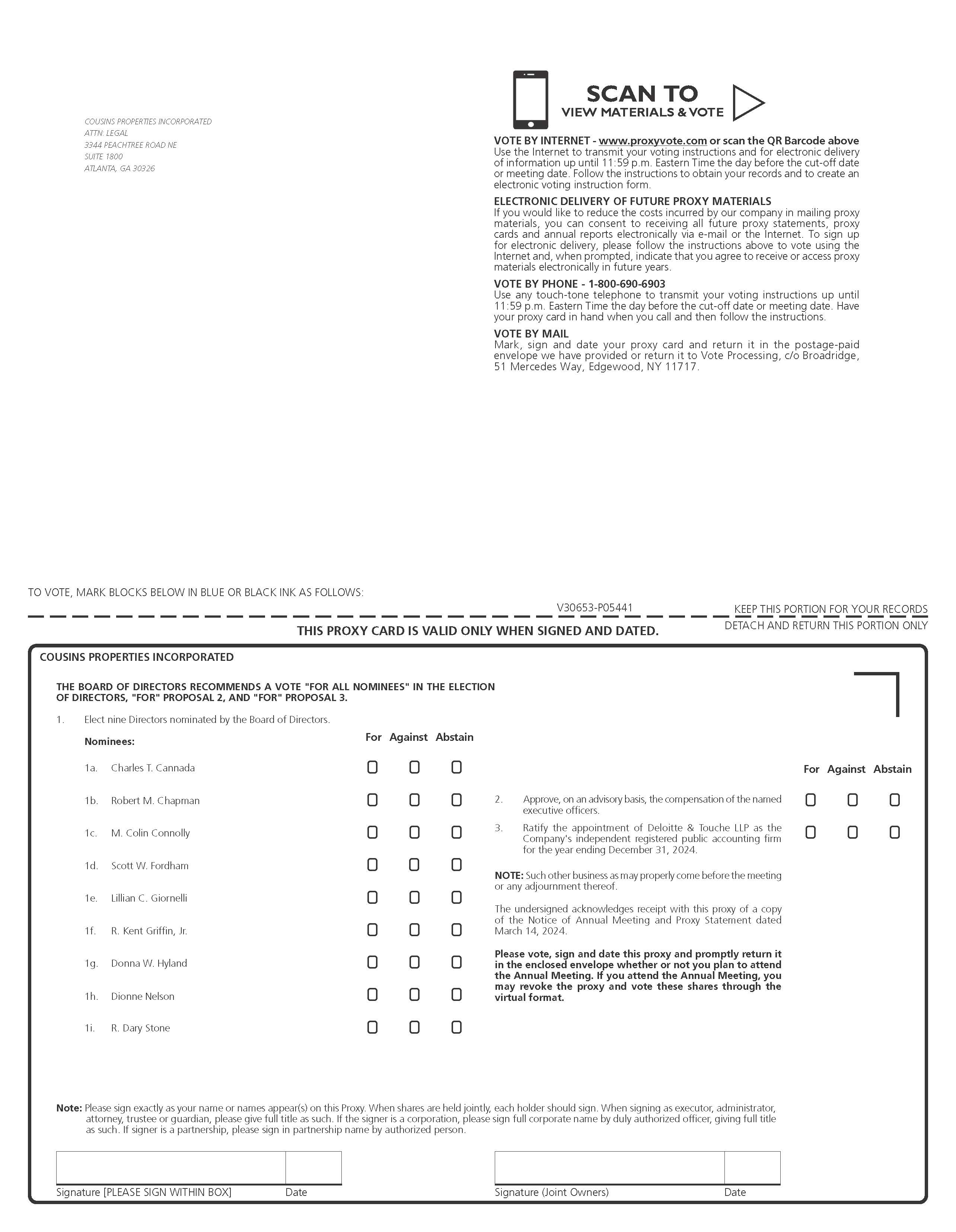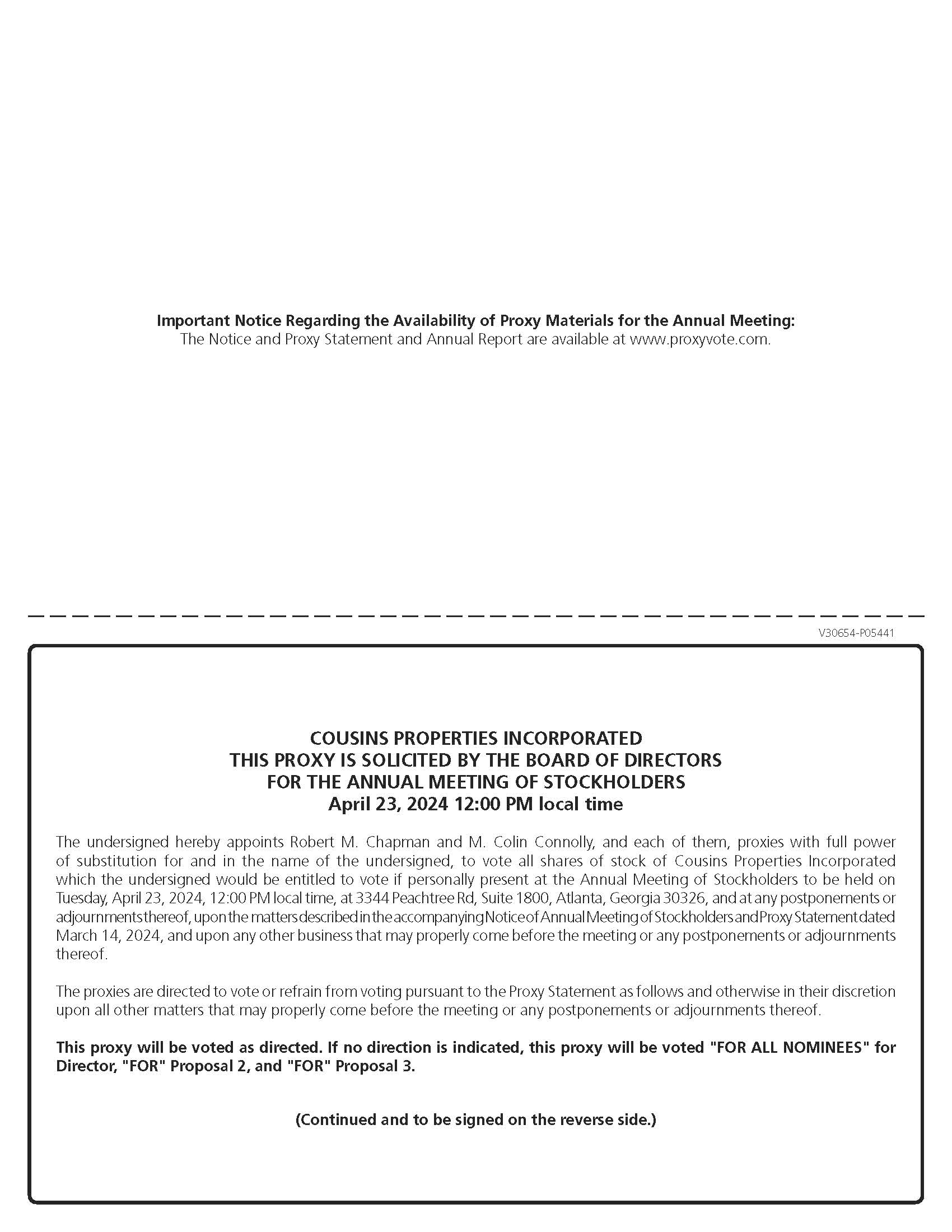evaluation. The Nominating & Governance Committee (for purposes of this discussion, the “Governance Committee”)
oversees the annual self-assessment process on behalf of the Board. The formal self-evaluation may be in the form of
written or oral questionnaires, administered by Board members, management, or third parties. Each year, our
Governance Committee discusses and considers the appropriate approach and approves the form of the evaluation.
In 2023, Mr. Stone, as Chair of our Governance Committee, conducted individual interviews with each member to review
and discuss the following: Board structure, size, and composition (including diversity), including current membership;
committee structures, size, composition, and leadership; effectiveness of communications with management, including
written materials; director engagement; effectiveness of communications among Directors; succession planning for
management; performance of Director Connolly as CEO; performance of Chairs of Board and committees; effectiveness
of oversight by Board, including risk management and strategic planning; and effectiveness, duration, and frequency of
meetings. These discussions utilized a detailed questionnaire as a prompt. Mr. Stone prepared a verbal report with
details regarding the discussions to the Executive Chair and the CEO. In February 2024, Mr. Stone also provided verbal
summaries of the discussions with the Governance Committee and with the full Board.
We intend periodically to conduct similar evaluations in the future, and we may utilize the services of a third-party
consultant for this purpose, as our Board deems appropriate as part of our standard annual performance evaluation and
self-assessment process.
HEDGING, PLEDGING, AND INSIDER TRADING POLICY
Our insider trading policy prohibits our employees, officers, and Directors from hedging their ownership of our stock,
including a prohibition on short sales, buying or selling of puts and calls, and purchasing our stock on margin. Our
insider trading policy also prohibits our employees, officers, and Directors from purchasing or selling our securities while
in possession of material non-public information. None of our executive officers or Directors holds any of our stock
subject to pledge.
The Company’s insider trading policy is part of our Code of Business Conduct and Ethics. At least annually, our
employees are required to confirm they have reviewed and understood the Code and the policy. Additionally our regular
compliance training for all employees includes training on insider trading. Our regular cadence of equity grants to
officers and directors is structured so that the the dollar value of the grants is determined in advance, with the actual
number of shares under the grant determined based on the closing stock price of a future date that is at least two
trading days after release of our quarterly earnings report (and otherwise not while the Company is in possession of
material non-public information).
STOCKHOLDER ENGAGEMENT AND OUTREACH
Our commitment to understanding the interests and perspectives of our stockholders is a key component of our
corporate governance strategy and compensation philosophy. Throughout the year, we regularly meet with our investors
to share our perspective and to solicit their feedback on a variety of topics, such as our strategy and performance,
corporate governance, compensation practices, market conditions, and sustainability goals and achievements.
Additionally, frequent topics include general trends and performance of the office sector, Sun Belt market fundamental
conditions and opportunities, Company financial performance and guidance, and potential investment opportunities. As
is increasingly common among all public companies, including REITs, a substantial portion of our stockholders are
considered passive investors and generally do not engage with issuers. While we welcome all opportunities for
meaningful stockholder engagement, most of our successful engagement efforts are focused on our active institutional
investors. Approximately 55% of our outstanding shares are represented by active investors. We met with
representatives of 94% of those shares to solicit their input on a variety of topics, including market conditions, executive












